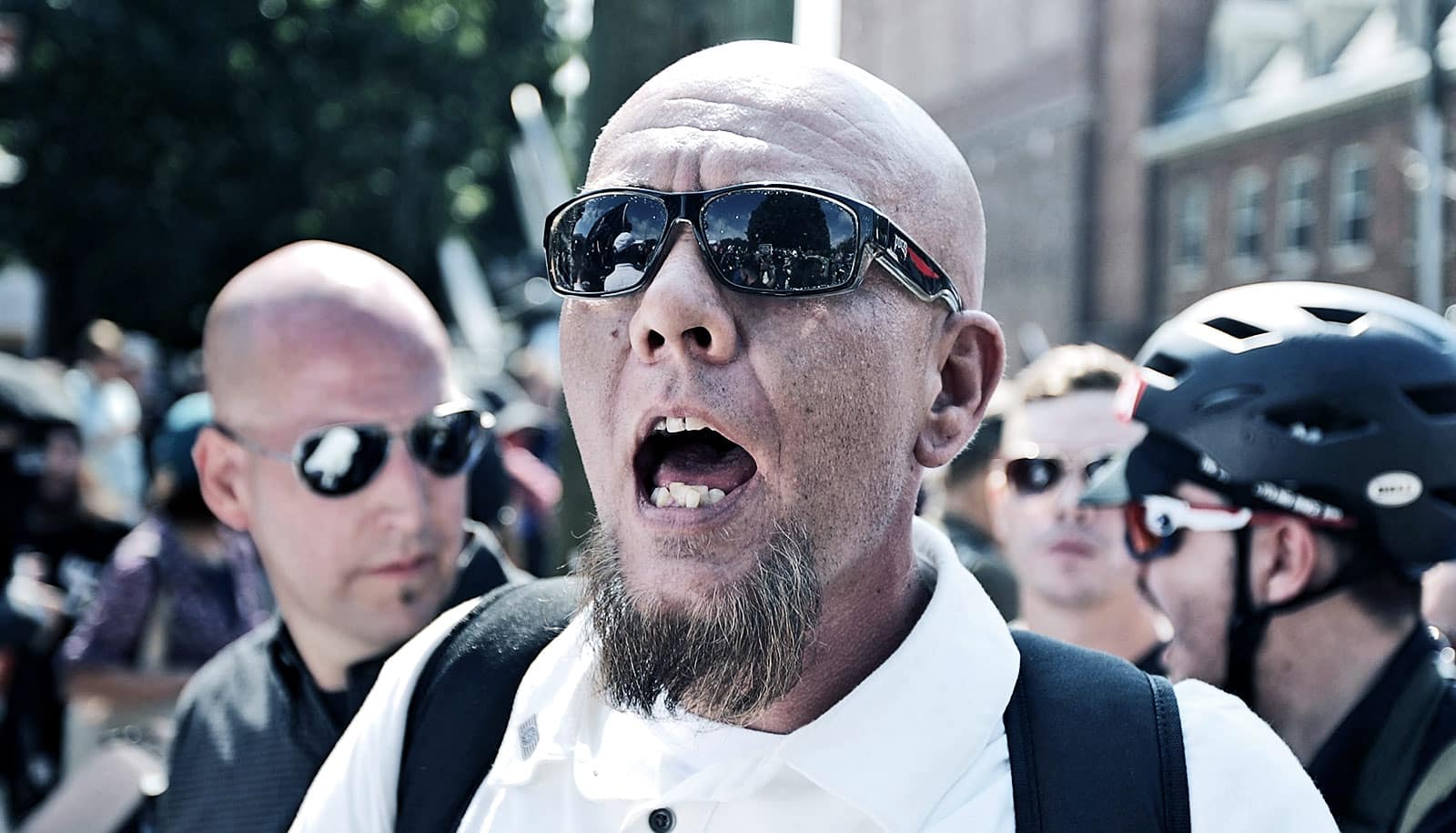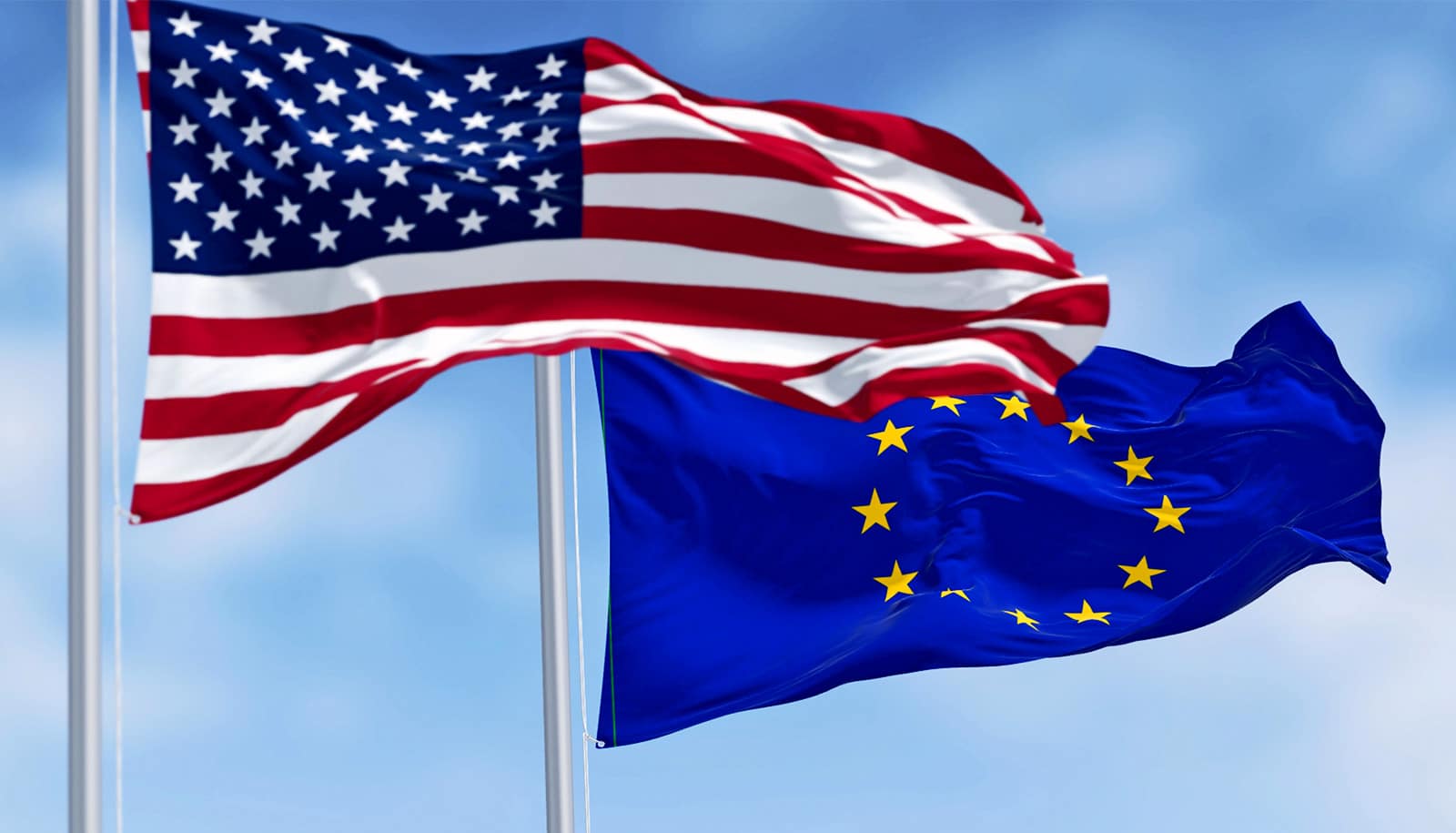When Barack Obama became the first African-American president in 2008, many saw it as a milestone that racism in the United States was on the wane. But what is really happening?
Statistics highlighting pay disparity, an extreme jump in the incarceration rates, the number of police shootings, and maternity ward deaths, tell a different story, says Rick Banks, professor of law at Stanford University.
One year after white supremacist marchers clashed with protesters in Charlottesville, Virginia, Banks discusses racism and some of the social and economic drivers for the movement.
Is there evidence that racism and hate crimes are up?
I don’t know whether there is evidence that the frequency of hate crimes (which are notoriously difficult to measure) has increased.
What does seem to be the case is that racist activity and organizing has increased. The white supremacist march that happened at Charlottesville would have seemed unimaginable years earlier. The anniversary march at the United States Capitol in contrast was a dud.
Are white supremacist and other affiliated hate groups more emboldened today?
White supremacist hate groups do seem more emboldened now than, say, five years ago. There are a lot of factors that contribute to the visibility of people espousing a pernicious ideology that all Americans should view as anathema to our nation.
What’s driving that?
Two factors that many people have identified are that technology now makes it ever easier for people to connect with like-minded compatriots, who can reinforce and bolster each other’s thinking.
“At a deeper level, the seemingly bold action of white supremacist groups reflects fear and uncertainty…”
Social support can inspire people to act, for good or ill. Also, President Trump’s unwillingness to condemn white supremacist rhetoric and activism confers it some legitimacy. When the President refers to people who spew such undeniably hateful rhetoric as “fine people,” it makes a difference.
At a deeper level, the seemingly bold action of white supremacist groups reflects fear and uncertainty, as it always has. American society is changing, both socially and economically.
Our society is becoming increasingly nonwhite. That shift in demographics will reorient the social and cultural milieu as well. These social and cultural changes are likely disorienting to many people, and are made more so by the massive economic anxiety that many people in our nation feel.
Earlier this year you wrote an op-ed for the New York Times in which you discussed a Stanford report on equality. Can you talk about how the economy plays into this?
Since the financial crisis a decade ago, the economy has, by some measures, recovered. The stock market is rising; corporate profits are strong. Yet the position of many workers is tenuous.
“For all the wonders of our economy, it has created extreme winners and losers.”
Even as the official unemployment rate has fallen, wages for many workers have risen little if at all. And the labor force participation rate has not risen, remaining below that of most other industrialized countries. Many people remain outside the economic mainstream. This is all to say that many people do not experience or perceive the brightening economic prospects suggested by surging corporate share prices.
How Islamophobia overlaps with racism
Many of these people are justifiably worried about their future, whether they and, more importantly, their children will be able to find a place in a globalizing technologically oriented economy. For all the wonders of our economy, it has created extreme winners and losers, and being one of the losers is not where one wants to be.
What can policy makers do to improve the situation?
For the long term viability of the American project, we have to find ways to counter the despair that many people justifiably feel. We need to create avenues of advancement so that people can genuinely have hope that their children’s lives will be better than theirs.
And we need more of a safety net than we have. The inability to access medical care, housing, food—these are circumstances that should not exist in a nation as prosperous as ours.
Source: Sharon Driscoll for Stanford University



